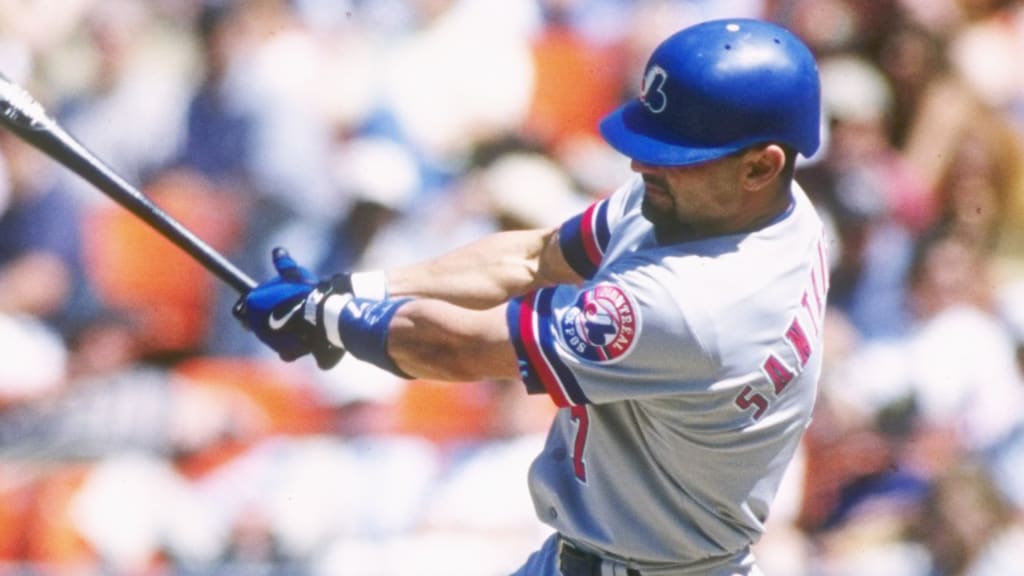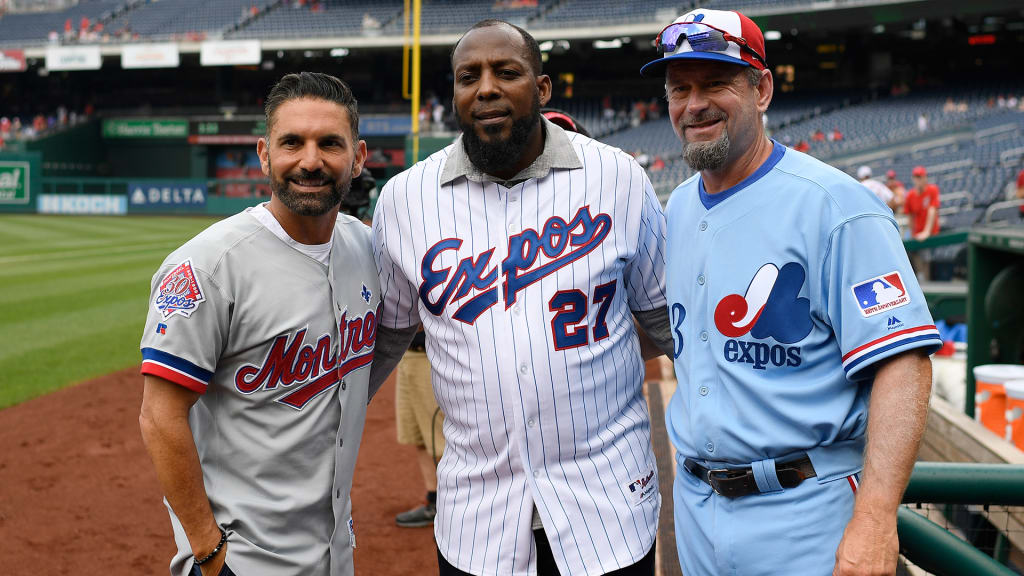
There’s an unpredictability in being a utility player. Each day could look different from the next, whether it’s the number of at-bats or defensive assignments. For F.P. Santangelo, succeeding in that role meant making the unpredictable look routine.
“I didn’t want people to think, ‘That’s a utility player playing shortstop,'” Santangelo said. “I wanted them to go, ‘That guy's a really good center fielder’ or, ‘That guy’s a really good second baseman.’"
Before he joined the Nationals' television broadcast in 2011, Santangelo donned an Expos uniform from 1995-98. He appeared in 439 games over those four years, wearing many hats for Montreal. Santangelo split his time between six roles -- second base, third base, left field, center field, right field and pinch-hitter -- while starting in 324 contests and coming off the bench in 115.
“It’s kind of a different mindset every day,” Santangelo said. “You have to do, I think, twice the work as a second baseman or a center fielder, because every day I came to the ballpark, I didn’t know where I was going to play. …
“If I wasn’t playing on a given day, I would take ground balls at second, short and third. I would pick one outfield position and shag fly balls there. All the while, you’re a switch-hitter, so you have to hone both swings. My days were full when I wasn’t playing."
Just as Santangelo developed into a switch-hitter at age 18, he expanded into a utility role years into his baseball career. He had played shortstop his entire life, and was selected at that position by the Expos in the 20th round of the 1989 Draft. He was playing Class A Advanced ball in 1990, when Montreal picked another shortstop, Chris Martin, in the second round. Santangelo was presented with a scenario that would change his career outlook.
“I was playing pretty good at shortstop," he said. "But Felipe Alou was my manager and said, ‘We’ve got to play this kid. The Expos told me we’ve got to play this kid at shortstop. I need you in the lineup, so I need you to start taking ground balls at second. I need you to start taking ground balls at third. Have you ever played the outfield?’”
Santangelo responded by arriving early to the ballpark to take fungos and shag balls in the outfield. He had been a wide receiver in high school, and the new position felt natural, like catching football passes. That Minor League season, he played 54 games at shortstop, 25 in the outfield, 14 at second base and nine at third.
“I took great pride in that if it was in the ballpark, I was going to catch it,” he said, adding, “I think if I was just a shortstop, I don’t know that I would even have gotten out of A-ball.”

Santangelo made his Major League debut in 1995, and he embraced the variety of assignments he was given. At this time, his former Minor League manager Alou had been hired at the helm for the Expos. Like he had adapted in A-ball, Santangelo was ready for anything on a given day. It helped prepare him for his career after Montreal.
“Felipe wouldn’t tell me,” Santangelo said. “I’d walk in the clubhouse and I would just see a five by my name and go, ‘Oh, I’m playing third today. I’m going to take a lot of ground balls at third.' But Dusty Baker [on the 1999 Giants] would say, ‘Hey F.P., you’re going to play Tuesday and Thursday and Saturday this week. I’m going to need you at center field for two and second base for one, because I’m going to give Jeff Kent a day off.’ It’s just different theories for different managers.”
Santangelo gleaned knowledge from the careers of Tony Phillips and José Oquendo. He also used his own experiences on defense to improve his approach at the plate. Santangelo enjoyed manning center field for its view of the strike zone -- “I would do my homework for my at-bats,” he said. This wide-ranging perspective helped him stay ready.
“It gave me a different look and it kept it exciting,” Santangelo said. “There was always a place to play because A, there’s always somebody struggling, and B, there’s always somebody hurt. If somebody went down, I was the guy. If somebody was 0-for-20, I was the guy. So I was getting lots of at-bats every year, because I was a switch-hitter, so it wasn’t like I was going to sit against a lefty, and I could play six positions.”
When Santangelo concluded his tenure with the Expos, he had made 137 appearances in left field, 106 in center, 68 in right, 52 at third base, 48 at second, two at shortstop and 51 as a pinch-hitter. He tallied a slash line of .251/.361/.722 with 307 hits, 174 runs and a 6.5 bWAR (45th all-time in franchise history) in 1,483 plate appearances.
Santangelo went on to play one season each with the Giants, Dodgers and Athletics. He accumulated a career .985 fielding percentage with just 10 errors over 3,075 1/3 innings while juggling multiple defensive assignments.
“I played as hard as anybody,” Santangelo said. “Every single day, I approached every game like it was my last. I got dinged up, I ran into stuff, I was bloody and dirty every single game. That’s just the way I approached it, because I had to. In my mind, I was playing every day to stay in the big leagues. The way I stayed in it for seven years was, I tried to find a way to beat you every night. I tried to find a way to help my team win every single night.”
